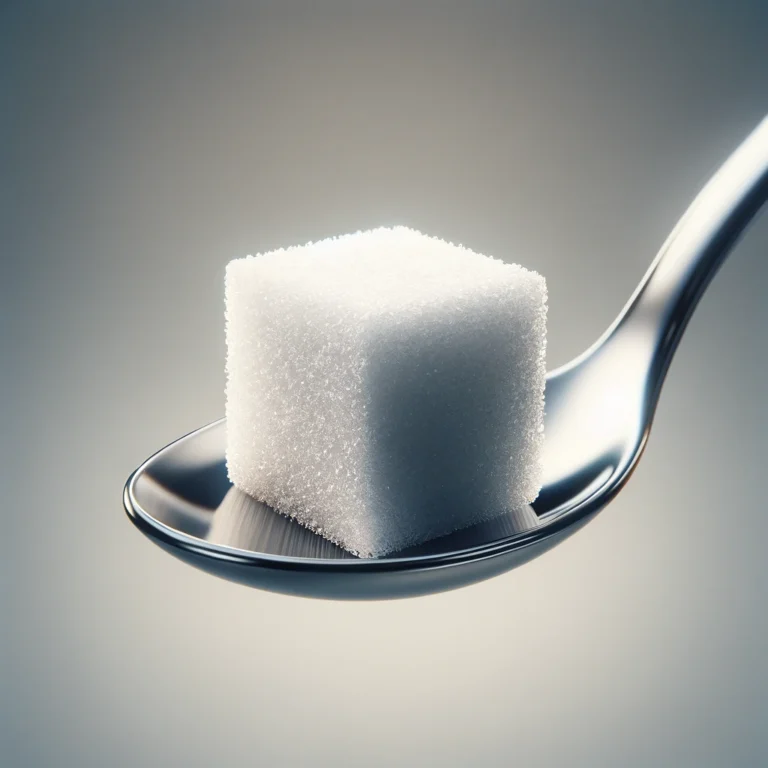Dietitians List the Top 7 Nutrients to Support Gut Health
Signs of digestive distress are more common than you may believe, ranging from continuous stomach pain to episodes…
Signs of digestive distress are more common than you may believe, ranging from continuous stomach pain to episodes of bloating, waves of nausea, watery stools, and backed-up intestines. Disturbances with digestion affect around 70 million Americans, according to the National Institute of Diabetes and Digestive and Kidney Diseases.
Probiotics and prebiotics are two options that people may consider while trying to relieve the symptoms of gastrointestinal distress. According to JeJe Noval, Ph.D., M.S., RDN, an integrative and functional registered dietitian with a focus on hormone and digestive health, “probiotics and prebiotics are tools that play a role in optimizing one’s gut health, but those are not the only tools that are important for improving the balance of the gut community.” It also takes a well-balanced diet with sufficient amounts of the essential vitamins and minerals to maintain a healthy gut.
1. Zinc
Zinc serves a variety of purposes in the human body and is the second most abundant trace mineral. Zinc is well known for its functions in growth and development, wound healing, immunity, and biomolecules described in 2022, but it is also critical for gut health. According to Sara Korzeniewski, RD, FDN-P, a registered dietitian, functional medicine practitioner, transformational coach, and CEO of The Organic Dietitian, “zinc plays a crucial role in maintaining proper gastrointestinal health by aiding in the production of stomach acid necessary for effective digestion.” According to her, in order for stomach acid levels to function at their best, zinc and sodium are required.
But the advantages of improving the gut don’t end there. According to Noval, zinc can also aid in regaining the gastrointestinal tract’s lining cells’ tightness.Accordingly, according to Korzeniewski, zinc “is necessary for preserving the integrity of the gut lining, preventing leaky gut syndrome, and food intolerances.” According to Noval, “dairy, eggs, legumes, nuts, and seeds are some good sources of zinc.” However, Korzeniewski notes that “the best absorbable dietary sources of zinc include oysters, red meat, and poultry.”
2. Magnesium
Magnesium is an amazing mineral that maintains the stomach’s smooth operation. More precisely, “it helps relax the gut’s muscles, which further facilitates food’s easy passage through the digestive tract and wards off constipation.” Constipation, bloating, and stomach pain are among the GI issues that can result from a low magnesium diet. As a result, it’s critical to incorporate foods high in magnesium in your diet as much as you can, such as dark chocolate, avocados, spinach, and anchovies.
3. Selenium
Selenium is an important mineral for digestive health even though it is well recognized for its role in thyroid hormone metabolism. Because it supports pancreatic homeostasis, which controls the synthesis of digestive fluids, selenium is essential for preserving a healthy digestive system. According to Korzeniewski, this important mineral also helps to prevent oxidative damage and inflammation, both of which can have a detrimental effect on gastrointestinal health.
“Selenium can also help balance the gut community,” adds Noval. A diet rich in selenium may improve gut microbiota and guard against intestinal dysfunction, per a 2021 study published in Frontiers in Nutrition. According to Korzeniewski, “the top food sources of selenium include corn, garlic, goat and cow milk, Brazil nuts (depending on soil content), beef, pork chops, chicken breasts, seafood, and eggs.” This will help you make sure you are getting enough of this essential mineral.
4. Vitamin D
Beyond just maintaining strong bones, vitamin D has other benefits. “Vitamin D is an essential nutrient crucial in maintaining a healthy gastrointestinal tract,” says Korzeniewski, speaking with EatingWell. The intestinal immune response depends on the gut-associated lymphoid tissue (GALT), which is crucial for immune system regulation when vitamin D is in its active form. Therefore, according to Korzeniewski, “a lack of vitamin D can negatively affect the gut, including impaired immune function and increased inflammation.” She says that the finest nutritional sources are things like oily fish, pastured egg yolks, pastured butter, grass-fed beef, liver, and organ meats, among other things, in addition to getting enough sun exposure.
5. Vitamin A
Not just your eyes benefit from a sufficient diet of vitamin A. Similar to zinc, vitamin A is a critical mineral that, in the words of Korzeniewski, “helps in the growth, repair and maintenance of the gut’s mucosal lining, which acts as a barrier against harmful toxins and pathogens.” “By augmenting the generation of immune cells that maintain gut health, vitamin A also strengthens the immune system,” continues Korzeniewski.
However, Noval points out that a vitamin A deficit “can exacerbate the gut community.” Vitamin A deficiency may drastically change the variety of the gut microbiota, decreasing helpful bacteria and boosting dangerous bacteria, according to a 2022 review published in Nutrients. Thankfully, foods like eggs, salmon, liver, and fortified foods contain vitamin A in its best form. According to a 2022 review published in Frontiers in Nutrition, your body can convert beta carotene, which is found in plant foods including leafy greens, sweet potatoes, carrots, and butternut squash, into vitamin A, albeit the rate of conversion is hereditary.
6. Vitamin C
Vitamin C is well-known for boosting immunity. However, vitamin C is also necessary for the optimal functioning of your stomach. Most notably, “Vitamin C acts as an antioxidant and facilitates nutrient absorption, playing a crucial role in gastrointestinal health.” Additionally, it aids in the production of collagen, which supports the health of the stomach lining, as noted by Korzeniewski. Consuming an abundant diet rich in fruits and vegetables will provide you with all the vitamin C you require in a day. The best produce includes bell peppers, strawberries, broccoli, guavas, kiwis, and, of course, oranges.
7. B Vitamins
Several of the eight B vitamins are particularly well-known for their capacity to promote gut health. For example, the efficient functioning of the digestive system depends on vitamin B1, and the synthesis of neurotransmitters that control intestinal movements is aided by vitamin B6. According to Korzeniewski, the formation of healthy gut cells and the prevention of digestive diseases depend on other B vitamins, including B9 and B12.
Noval adds, “Some B vitamins have an impact on the growth of specific bacteria in the gut community.” Faecalibacterium prausnitzii, for instance, has been demonstrated to have anti-inflammatory and gut-lining-enhancing qualities, and a 2021 review published in Nutrition Research emphasizes that a high consumption of vitamin B2 is linked to an increase in this bacteria. Fortunately, a wide range of foods, including whole grains, dairy, eggs, fish, meat, nuts, mushrooms, leafy greens, and avocado, contain B vitamins.
Additional Elements That Impact Gut Health
While the gut requires adequate amounts of the aforementioned nutrients, other factors that are related to gastrointestinal health are sometimes disregarded. “The process of mending the gut is intricate and multidimensional, including many different elements. This includes altering one’s food as well as leading a healthier lifestyle by lowering contaminants in the surroundings, controlling the nervous system, and getting better sleep, according to Korzeniewski.
Both dietitians concur that treating unresolved stress and trauma can significantly improve gut health. Our resilience declines when we encounter psychological stress, trauma, and other unfavorable situations. Our bodies are extraordinarily resilient and well-equipped to preserve robust health. Consequently, Korzeniewski states that in order to properly heal the gut and optimize gut health, it is imperative to address these underlying factors adding to gut issues. Therefore, living a joyful, passionate, and happy life can greatly enhance the general health and function of your stomach. Further, Korzeniewski states that probiotics and prebiotics [alone] won’t produce the same long-term effects as a holistic approach to improving gut health.
In summary
Maintaining a nutrient-dense diet high in zinc, magnesium, selenium, and vitamins A, D, B, and C is one strategy to enhance your gut health. Every one of these micronutrients is essential for preserving the mucosal lining of the gut, reducing inflammation within the intestines, regulating the flow of digestive juices, and promoting optimal gut function. But in addition to nutritional factors that affect gut health, it could be helpful to evaluate your exposure to toxins, sleep patterns, and underlying stress. Finally, Korzeniewski emphasizes the significance of understanding that there is no one-size-fits-all method for gut healing and that what works for one person might not work for another. Working with a certified dietician who can support you on your own gut-healing path may therefore be beneficial.







